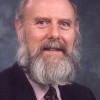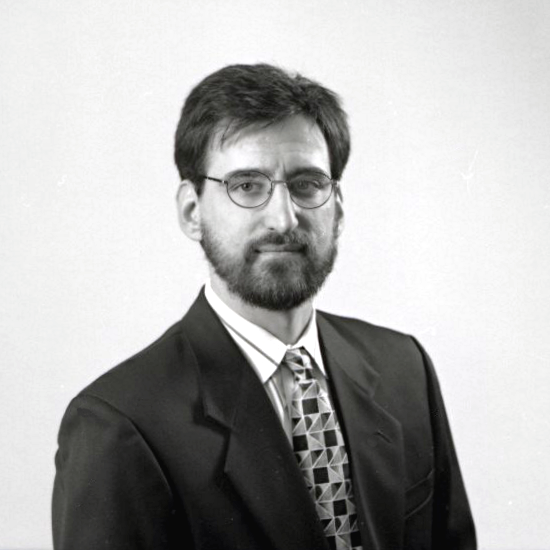Faculty 2011
Our lecturers are hand picked for their in-depth expertise and ability to convey their experiences to maximise the learning experience of our delegates. They also are friendly, approachable and able to have a good laugh! The intensive, yet informal, atmosphere at the XML Summer School gives delegates the opportunity to pick the brains of our expert faculty, both during the classes and afterwards over dinner or in the bar.
Faculty Board members also teach.
- Adam Retter

Adam Retter is co-director of eXist Solutions GmbH, which provides support and consultancy for the open source eXist Native XML Databaseand web platform. With over a decades experience in building online web applications, having started with Perl, CGI, and C++ ISAPI moving up through to .NET, PHP and J2EE, today he is much happier doing the same using XQuery, XSLT and XForms.Adam is an invited expert on the W3C XQuery Working Group, where he focuses on representing the Open Source communities interests and advancing XQuery for complete web application development.Adam is a strong proponent of XML Application Server architectures, where entire applications are built in XML technologies and power enterprise scale end-to-end XML and XRX Applications. To further standardise XML application development, Adam founded the EXQuery project in early 2009 and has since been working with the community and as part of the EXPath project to standardise and improve XML application development with XQuery, XSLT and XPath.
Adam’s homepage is at http://www.adamretter.org.uk.
- Dr. Andy Seaborne

Andy has been working on the storage and query of RDF data, first as a researcher at HPLabs, and now at Epimorphics.Andy is continuing his participation in the SPARQL standardization process. He started as a member of the W3C RDF Data Access Working Group and is a member of the current W3C SPARQL Working Group. Andy co-edits the query language specification and lead the proposal submission for SPARQL Update and is a member of the W3C RDF Working Group.He also works on Apache Jena, an open source RDF framework for Java, where he contributed the query engine, ensuring that complete implementations of the standards are available, and several persistent storage sub-systems.Andy has a PhD in Computer Science from the Computer Laboratory at the University of Cambridge.Andy is teaching in the Semantic Technologies course.- Professor David Shotton

David is at the Department of Zoology, University of Oxford and writes:A cell biologist by background, I currently develop services for the management, sharing, integration and reuse of biological research data, e.g. OpenFlyData, ADMIRAL and DataFlow. I also work in Semantic Publishing, developing the SPAR (Semantic Publishing and Referencing) Ontologies for describing bibliographic entities and citations. In particular, I wish to improved reporting of infectious disease investigations, for which we have developed MIIDI, a Minimal Information standard for reporting an Infectious Disease Investigation, and MIIDI Forms, a web tool that facilitates the entry of such metadata using web services to import data and ontology terms. I now wish to create Open Research Reports based on MIIDI, namely open access structured digital abstracts in both human- and machine-readable form that describe disease datasets or journal articles. Other interests include using these techniques to assist data integration in the humanities, as exemplified by the CLAROS project.David’s homepage is at http://www.zoo.ox.ac.uk/staff/ academics/shotton_dm.htm.- Debbie Lapeyre

Ms. Lapeyre has been working with XML, XSLT, and XPath since their inception and with SGML (XML’s predecessor) since 1984. Debbie is an architect and developer of XML Tag Sets (vocabularies) who designs and writes the schemas (DTD, XSD, RELAX NG) that model those vocabularies. Most recently, she serves as the architect and as a member of the design team for the NLM Journal Archiving and Interchange Tag Suite, now the de facto standard for tagging journal articles worldwide.As a document-oriented publishing analyst, Debbie helps clients to analyze their information management, retrieval, and distribution/publication requirements and translates these requirements into functioning production systems, based on XML technologies. As a senior XSLT and XSL-FO consultant for Mulberry Technologies, Inc., she designs both pages and specifications for complex XSLT transforms and stylesheets as well as develops prototype XSLT applications.Debbie is a member of the XML Guild. She is also a co-chair of “Balisage: The Markup Conference” and has previously co-chaired “Extreme Markup Languages”, “Markup Technologies”, and the annual international “SGML/XML’XX Conference”. She teaches XML, XSLT, XSL-FO, Schematron, What-is-XML-and-Why-Should-You-Care, and XML print workflows at venues all over the English-speaking world.- Gary Cornelius

Gary Cornelius is an experienced XML consultant and information architect, working for Eleven Informations, LLP. Gary has been an active contributor to XML mailing lists and standards for over a decade and enjoys technical project management involving XML. He has developed several XML and web related training courses for IT engineers and managers. Interested in data visualisation and usability, he has investigated many tools and techniques for visualization of complex XML data. Gary has both broad knowledge and hands-on experience of XML having worked across many market sectors on XML information architectures. He studied publishing, graphic communication management, and digital imaging.- Dr. Henry Thompson

Henry S. Thompson divides his time between the School of Informatics at the University of Edinburgh, where he is Professor of Web Informatics, based in the Institute for Language, Cognition and Computation, and independent consulting on XML-related business strategy.He received his Ph.D. in Linguistics from the University of California at Berkeley in 1980. His university education was divided between Linguistics and Computer Science, in which he holds an M.Sc. While still at Berkeley he was affiliated with the Natural Language Research Group at the Xerox Palo Alto Research Center, where he participated in the GUS and KRL projects. His research interests have ranged widely, including natural language parsing, speech recognition, machine translation evaluation, modelling human lexical access mechanisms, the fine structure of human-human dialogue, language resource creation and architectures for linguistic annotation. His current research is focussed on the semantics of markup, XML pipelines and more generally understanding and articulating the architectures of the Web.He was a member of the SGML Working Group of the World Wide Web Consortium which designed XML, a major contributor to the core concepts of XSLT and W3C XML Schema and is currently a member of the XML Core, XML Schema and XML Processing Model Working Groups of the W3C. He has been elected three times to the W3C TAG (Technical Architecture Group). He was lead editor of the Structures part of the XML Schema W3C Recommendation, for which he co-wrote the first publicly available implementation, XSV. From 2002 through 2010 he was a member of the technical staff of the World Wide Web Consortium (W3C), where he worked in the XML Activity. He has presented many papers and tutorials on SGML, DSSSL, XML, XSLT, XML Schema, XML Pipelines and Web Architecture in both industrial and public settings over the last thirteen years.Homepage: http://www.ltg.ed.ac.uk/~ht/- Dr. Jeni Tennison

Dr. Jeni Tennison is an independent consultant. She specialises in XSLT and XML schema development with forays into AJAX and RDF. She trained as a knowledge engineer, gaining a PhD in collaborative ontology development, and since becoming a consultant has worked in a wide variety of areas, including journal publishing, medieval manuscripts, legislation and financial services. She is author of several books including “Beginning XSLT 2.0” (Apress, 2005).Jeni was an invited expert on the W3C’s XSL Working Group during the development of XSLT 2.0 and was one of the founders of the EXSLT initiative to standardise extensions to XSLT and XPath.- Jo Rabin

Jo’s a consultant CTO providing technology strategy and development management with a focus on mobile and publishing. His experience includes being CTO at dotMobi, Flirtomatic and at Reuters Mobile.While at Reuters, Jo developed the first version of the news industry interchange standard, NewsML. Between 2005 and Jan 2011 he co-chaired the W3C Mobile Web Best Practices Working Group, and was editor or co-editor of lots of mobile-related W3C Notes and Recommendations including Mobile Web Best Practices, Device Description Repository Simple API, mobileOK Basic Tests and Guidelines for Web Content Transformation Proxies.Jo’s a co-founder and co-organiser of MobileMonday London which holds monthly mobile related events and hosts a lively discussion list on all matters mobile.- Joe Gollner

Joe Gollner (www.gollner.ca) is the Director of Gnostyx Research where he works with organizations to make the most of open standards and intelligent content technologies. Previously, Joe served as Vice President and Chief Solution Architect for Stilo International where he led a world-class team in delivery of highly scalable content solutions that leveraged the latest innovations in the OmniMark programming language. Prior to that, he was the founder and president of XIA Systems Corporation, an XML solution integrator that he founded in 1998 and that he sold to Stilo International in 2004. While he has worked in a wide variety of industries, he has been continuously engaged in the design, development and deployment of large-scale solutions in the aerospace and defence sectors for over twenty years. A former Artillery Officer in the Canadian military, Joe was educated in a wide variety of subjects at Queens University (Bachelors of Arts, Mathematics and Literature) and the University of Oxford (Masters of Philosophy), and he has also completed graduate programs in project management, business analysis and knowledge management.- Leigh Dodds

Leigh Dodds is a semantic web geek who is passionate about the web, open standards and open data. Leigh has a strong technical background in developing with Java, XML, and semantic web technologies; has written numerous articles on related topics for IBM developerWorks and XML.com, and has presented at a number of technical conferences. Leigh was previously CTO at Ingenta and now works for Talis as a Programme Manager for the Talis Platform.- Matt Patterson

Matt Patterson has over 10 years experience building for the web, from web design and front-end development all the way through to back-end development. Along the way he’s co-written a book on CSS, which is currently in its second edition and has been translated into Italian and Spanish, led a software team at the BBC, and spent five of the last ten years running design- and development-focussed consultancies. He was also a co-organiser of the NoSQL Europeconference.He has a personal blog over at Reprocessed.- Dr. Michael Kay

Dr. Michael Kay is the founder and technical director of Saxonica Limited, which develops both the open source and commercial variants of the Saxon XSLT and XQuery processor, as well as offering XML-related consultancy services.Michael is an invited expert on the W3C working groups developing XSLT, XQuery, and XML Schema. In particular he is the technical lead on the XSL Working Group, which is currently developing a new version of the language to handle streaming transformations of large documents. He is also the author of the definitive reference book on XSLT 2.0, and has written numerous articles and conference papers on XSLT, XQuery, and related technologies. He is a member of the XML Guild, a group of leading independent XML consultants, and joint winner of the XML Cup in 2005, awarded for contributions to the XML community.Dr. Kay spent nearly 25 years with the British computer manufacturer ICL (later Fujitsu) where he designed and implemented a wide range of data management software products; appointed an ICL Fellow, he was also responsible for advising the company’s senior management and customers on technology strategy. He gained his Ph.D. at the University of Cambridge for research on database management systems, studying under Maurice Wilkes.Michael lives in Reading, England, 25 miles down the road from Oxford.Michael is teaching in the XSLT and XQuery course.- Norman (Norm) Walsh

Norman Walsh is a Lead Engineer at MarkLogic Corporation where he works with the Application Services team. Norm is also an active participant in a number of standards efforts worldwide: he is chair of the XML Processing Model Working Group at the W3C where he is also co-chair of the XML Core Working Group. At OASIS, he is chair of the DocBook Technical Committee.With almost twenty years of industry experience, Norm is well known for his work on DocBook and a wide range of open source projects. He is the author of DocBook: The Definitive Guide.- Paul Downey

Paul Downey is an independent developer focussing on The Web. Until recently he was a member of Osmosoft, a small Open Source Innovation team at BT, where he contributed to a number of Open Source projects, notably TiddlyWiki. Formerly a participant in the standardisation of XML and Web services at the W3C, WS-I and OASIS, Paul spends his time evangelising the value of REST and the Web through code, presentations and uber-doodles such as the mildly notorious The Web is Agreement.- Sebastian Rahtz

Sebastian Rahtz is head of the Information and Support Group at Oxford University Computing Services, where he oversees the teams responsible for web, mobile apps, help desk, IT staff liaison, and development projects. He has been closely associated with the Text Encoding Initiative for the last decade as a member of its Technical Council, architect of its revised metaschema system, and author of a library of XSL transforms for TEI documents (including the Guidelines documentation and its schemas). Since 2008 he has been part of the team developing CLAROS (“the world of ancient art on the semantic web”) at Oxford, for which he leads the Metamorphoses sub-project which to manage its place and name linking. He is a bigot for open source, XML, TEI, XSL and (latterly) RDF and linked data.In past lives Sebastian has a degree in Classics and Modern Greek from Oxford and an MA in Archaeology from London. He worked as a field archaeologist, was a computer science lecturer at Southampton (where he was an early teacher of humanities computing, and archaeological computing), and had a stint as publication methods specialist for Elsevier Science. He spent much of the 1990s in the world of the TeX typesetting system.Sebastian has co-authored two books on TeX, edited many sets of conference proceedings, written many articles, is the author of a slew of TeX- and TEI-related software, has presented at many archaeological computing, TeX and XML conferences, and taught practical courses around the world.- Tim Davies

Tim Davies works at the intersection of open technologies and social change. He is co-director of Practical Participation, a consultancy specialising in rights-based approaches to youth and civic participation. He is currently curator of AidInfoLabs.org, a platform bringing together communities, tools and technologies to work with open data from the International Aid Transparency Initiative (IATI), and is working with IKM Emergent on demonstrator projects exploring the use of linked open data to communicate international development research findings. He is creator of the Open Data Cook Book wiki, collating practical how to guidance for non-technical users to make sense of open data. Tim’s MSc work at the Oxford Internet Institute in 2010 was titled ‘Open Data, Democracy and Public Sector Reform’ and explored how UK open government data was being used in practice. From October 2011 Tim will be studying for PhD in Web Science and Social Policy at the University of Southampton. Tim is a member of the Advisory Council to Open Rights Group, and the Dynamic Youth Coalition on Internet Governance. He blogs at http://www.timdavies.org.uk, tweets as @timdavies, and writes on open data at http://www.practicalparticipation.co.uk/odi/- Tony Graham

Tony Graham is an independent consultant who has been working with markup since 1991, with XML since 1996, and with XSL/XSLT since 1998. He is an invited expert on the W3C Working Group defining the XSL FO specification, an acknowledged expert in XSLT, developer of the open source xmlroff XSL formatter, a committer to both the XSpec and Juxy XSLT testing frameworks, the author of “Unicode: A Primer”, a member of the XML Guild, and a qualified trainer.Tony’s career in XML and SGML spans Japan, USA, and Ireland, working with data in English, Chinese, Japanese, and Korean, and with academic, automotive, publishing, software, and telecommunications applications. He has also spoken about XML, XSLT, XSL FO, EPUB, and related technologies to clients and conferences in North America, Europe, and Australia.